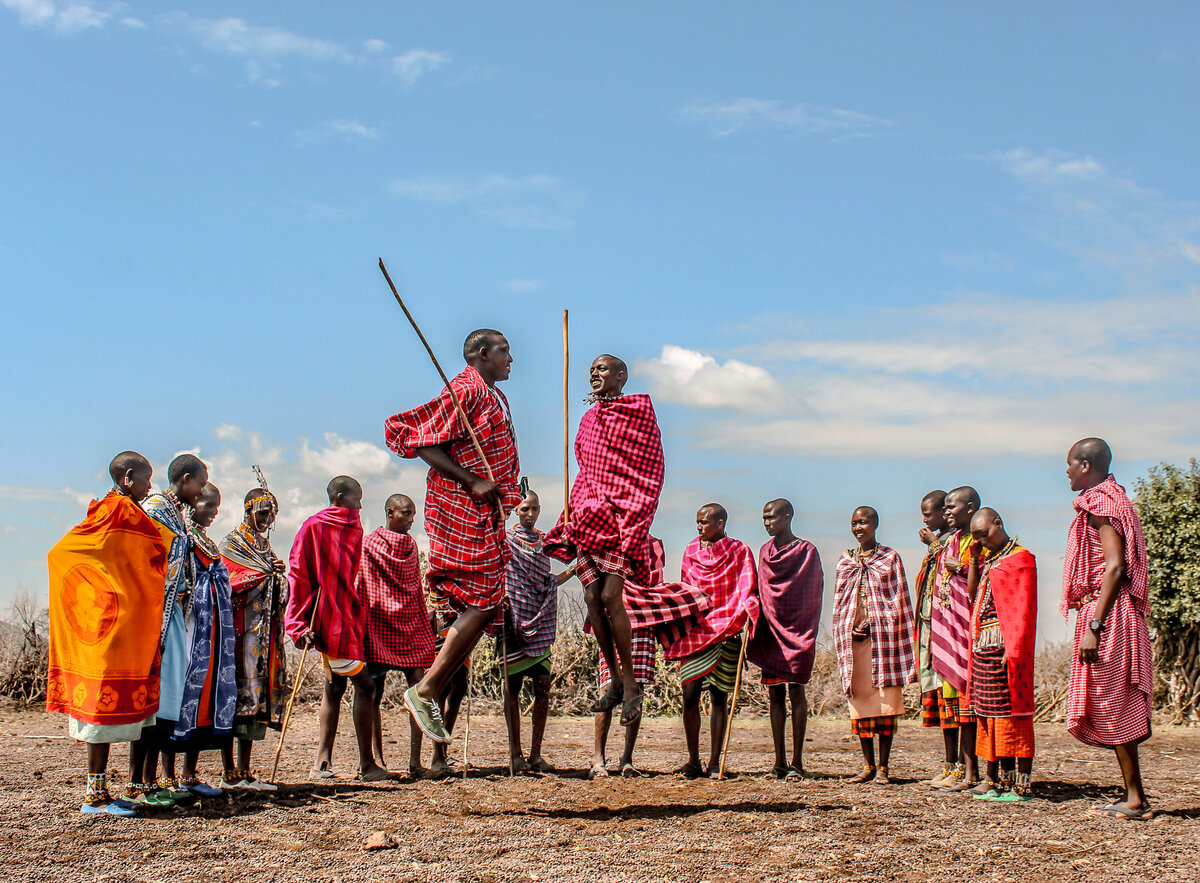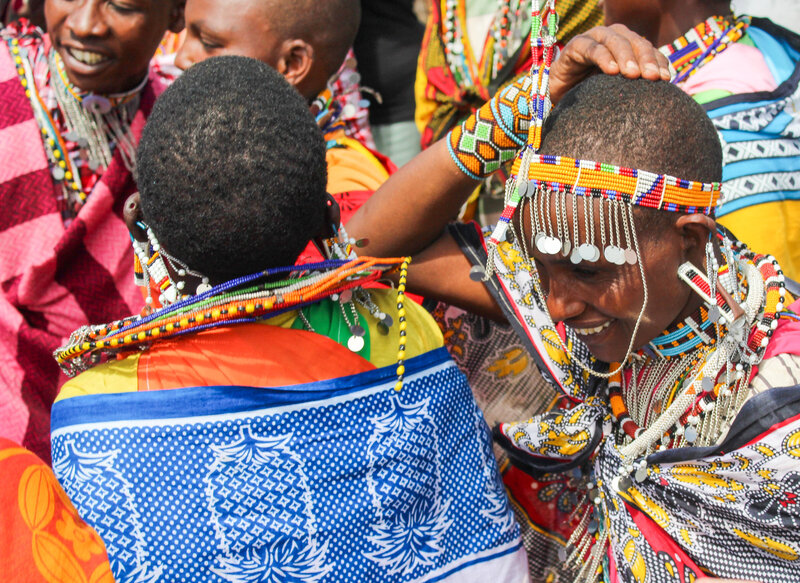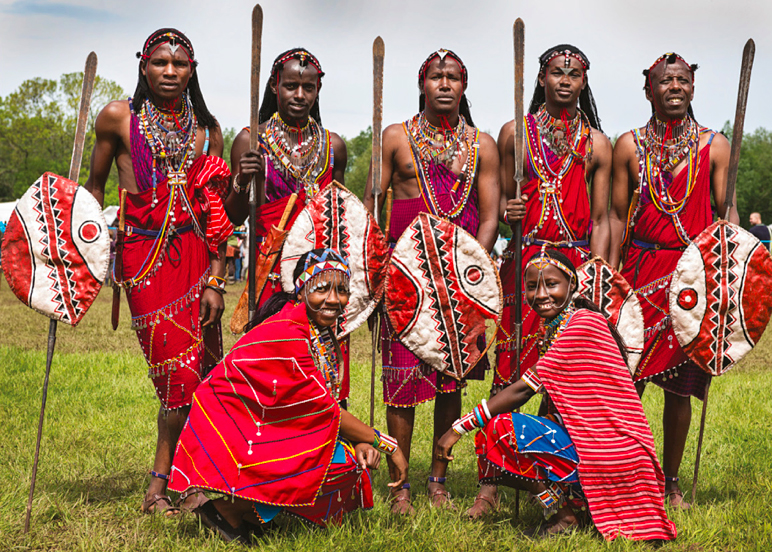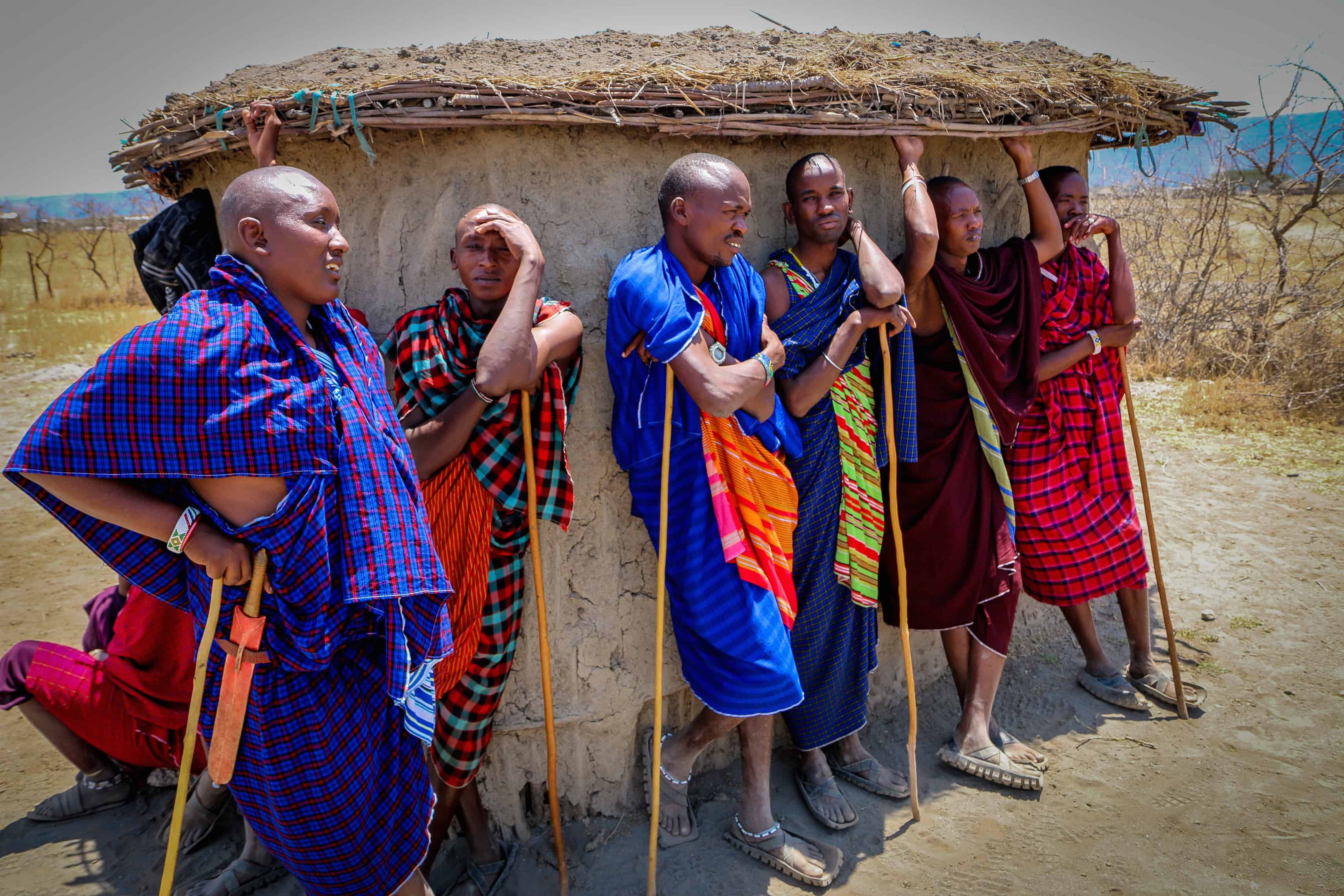A Guide to Experiencing Traditional Maasai Culture as an Australian Tourist in Tanzania
Introduction: Traditional Maasai Culture in Tanzania
History of the Maasai People
The Maasai people are a resilient community with a rich history that dates back several centuries. Originating from the region of the Nile Valley, they migrated southward to settle in what is now northern Tanzania and southern Kenya.
The Maasai have traditionally been semi-nomadic herders, raising cattle, sheep, and goats, which serve as the backbone of their culture and economy. Their strong connection to their land and livestock runs deep, directly influencing their social structure, rituals, and even their diet.
Interestingly, the Maasai have sustained their traditions despite the profound changes brought about by colonization, modernity, and agricultural encroachment. Their vibrant attire, distinct beadwork, and unique customs continue to captivate visitors from around the world.
Importance of Preserving Maasai Culture
As you embark on your journey to experience the Maasai culture, it’s essential to understand the significance of preserving their way of life. The Maasai represent a unique perspective on harmonious living with nature, showcasing sustainable practices that many modern societies strive to emulate today. Here are a few reasons why preserving Maasai culture is crucial:
- Cultural Diversity: The Maasai contribute to the rich tapestry of global cultures, embodying languages, traditions, and art forms that expand our understanding of human experience.
- Environmental Stewardship: Their traditional pastoralist lifestyle promotes biodiversity and land conservation through responsible herd management.
- Social Structure: The intricate customs and community ties within Maasai society emphasize cooperation and social responsibility.
- Economic Resilience: Ethnic tourism, driven by visitors keen to learn about Maasai traditions, provides vital income to the community.
By engaging thoughtfully with the Maasai people and their customs, you can help ensure that this invaluable culture continues to thrive for generations to come.

Planning Your Trip to Tanzania
Understanding Maasai Cultural Norms
As you prepare for your adventure in Tanzania, gaining insight into the Maasai cultural norms will enrich your experience. The Maasai have distinct customs that reflect their values and way of life. Embracing these norms will not only show respect but also foster genuine interactions. Here are a few key cultural norms to keep in mind:
- Greetings Matter: A handshake is a common greeting. However, it’s customary to greet the elder members of the community first. A simple "Sopa" (hello) will go a long way!
- Dress Appropriately: While it’s tempting to showcase your travel style, it’s advisable to wear modest clothing when visiting Maasai villages. Traditional attire is often colourful and practical, so consider wearing bright colours if you have any!
- Respect Elders: The Maasai hold their elders in high regard. When interacting, ensure to show deference and patience, allowing those of higher status to speak first.
Understanding these norms enhances your engagement with the local culture, making your visit more impactful.
Choosing Ethical Tour Operators
To truly appreciate the Maasai culture, selecting an ethical tour operator is paramount. An ethical operator prioritizes sustainability and respect for local communities, ensuring that your travel supports the Maasai. Here are some tips for choosing the right operator:
- Research Reviews: Look for operators with positive feedback from previous visitors. Check online platforms to get a sense of their reputation.
- Community Engagement: Choose companies that involve local Maasai in their tours, ensuring that profits stay within the community.
- Transparent Practices: Seek operators who are open about where your money goes; ethically run tours often support education, healthcare, and infrastructure in Maasai villages.
By aligning with ethical tour operators, you contribute to the conservation of the Maasai heritage while fostering an unforgettable travel experience.

Arriving in Tanzania
Immersing Yourself in Maasai Villages
Once you arrive in Tanzania, one of the most rewarding parts of your journey will be immersing yourself in the vibrant life of Maasai villages. After all, these communities are the heart of the Maasai culture, brimming with warmth, hospitality, and rich traditions. To truly experience this immersion, consider:
- Staying Overnight: If possible, opt for a homestay where you can spend a night with a Maasai family. This gives you an authentic glimpse into their daily lives and routines. You might help with herding cattle, cooking traditional meals, or learning about the significance of their customs.
- Participating in Daily Activities: Engage with locals in their regular chores. Whether it’s collecting water or tending to livestock, hands-on involvement creates lasting memories and connections.
By cherishing these moments, you're fortifying your understanding of what it means to be Maasai.
Participating in Cultural Experiences
In addition to village life, there are countless cultural experiences to enhance your visit. These activities not only provide insight into Maasai traditions but also allow you to take part in their lively practices. Consider these unique opportunities:
- Traditional Ceremonies: If your timing is right, you might witness a heady dance or initiation ceremony. These vibrant events showcase Maasai music, storytelling, and elaborate costumes, offering a deeper appreciation for their rich heritage.
- Craft Workshops: Many villages offer workshops in traditional crafts, like beadwork or basket weaving. Participating in these activities helps preserve the skills passed down through generations.
- Dance and Music: Join the Maasai in their energetic dances! Feel the rhythm as they welcome you into their circle—it's an unforgettable experience where you can learn the significance of each step and song.
Engaging in these cultural experiences not only enriches your trip but also fosters mutual respect and understanding, allowing you to embrace the true essence of the Maasai culture.

Understanding Maasai Traditions
Learning about Maasai Clothing and Jewelry
As you delve deeper into the rich tapestry of Maasai traditions, one of the most stunning aspects you’ll encounter is their clothing and jewellery. The bright colours and intricate patterns are not merely for aesthetics; they hold cultural meaning and convey social status within the community.
- Shúkà: The signature garment worn by Maasai men and women is known as the shúkà. This is a red or checkered cloth wrapped around the body. The color red holds deep significance, symbolizing courage and bravery. Depending on the occasion and social status, the patterns may vary.
- Beaded Jewelry: Adornments are equally important, with women often wearing elaborate necklaces, bracelets, and earrings adorned with colourful beads. Each colour signifies a unique meaning, such as:
- Red for bravery
- Yellow for wealth
- Blue for energy and hope
By engaging with local artisans, you can gain insights into the symbolism behind these stunning artworks and even try on some traditional attire for a memorable photo opportunity!
Engaging in Traditional Maasai Dance
No visit would be complete without experiencing the exhilarating world of traditional Maasai dance. These performances are not just entertainment; they are vital expressions of identity and communal spirit.
- The Jumping Dance: One of the most iconic forms of dance is the Adamu or jumping dance. Men take turns showcasing their skills by leaping high into the air. The higher they jump, the more respect and admiration they earn, often reflecting their strength and prowess.
- Community Participation: Don’t hesitate to join in! The energy is infectious, and the community welcomes outsiders to participate—embarking on this dance journey is a unique way to connect emotionally and physically with them.
By participating in dance, you not only gain insight into their traditions but also experience firsthand the spirit of unity and celebration that defines the Maasai culture. Your journey to understand Maasai traditions becomes a vibrant and fulfilling adventure, deepening your appreciation for their remarkable heritage.

Tasting Maasai Cuisine
Exploring Indigenous Food and Drinks
Food is an integral part of the Maasai culture and reflects their nomadic lifestyle and close relationship with the land. As you explore, you’ll encounter a palette of flavours that include traditional ingredients sourced from both livestock and vegetation. Some key elements of Maasai cuisine include:
- Meat: Being primarily pastoralists, the Maasai are known for their love of meat, particularly beef. It’s often prepared in stews or grilled to perfection during communal gatherings.
- Milk: Fresh milk is a staple, frequently enjoyed as a beverage. You might find that it’s mixed with blood from cattle—a practice that signifies bravery and is rich in nutrients.
- Ugali: This thick porridge made from maize flour is a staple in many African cultures, and the Maasai are no exception. It serves as the perfect base to accompany savoury dishes!
- Vegetables: Although meat is central, you'll also find dishes prepared with wild vegetables, often foraged by women. These add flavour and nutrition to their diets.
Sampling these local flavours provides a window into the daily life and traditions of the Maasai people.
Participating in Cooking Demonstrations
To truly savour the essence of Maasai cuisine, consider participating in a cooking demonstration. Many villages offer hands-on experiences that guide you through traditional cooking methods. Here’s what to expect:
- Learning Traditional Techniques: Under the guidance of skilled Maasai cooks, you’ll learn to prepare dishes using age-old methods. For instance, you may grind grains using a large stone or cook over open fires, bringing an authentic taste to your culinary adventure.
- Engaging with Locals: Sharing stories while cooking is a beautiful way to engage with local people. They’ll share anecdotes about the significance of certain dishes and even the cultural customs surrounding meal preparation.
- Enjoying Your Meal: After all the hard work, you’ll get to enjoy your delicious creations together—a communal dining experience that fosters connection and camaraderie.
By indulging in both the food and the process, you’ll gain a deeper appreciation for the Maasai way of life, making your culinary journey a highlight of your visit.

Supporting Maasai Artisans
Shopping for Handcrafted Souvenirs
As your journey through Maasai culture unfolds, one delightful way to contribute positively to the community is by supporting local artisans. The Maasai are known for their striking craftsmanship, and purchasing handcrafted souvenirs not only enhances your trip but also directly benefits the community. Here are some popular items to consider:
- Beaded Jewelry: The intricate designs of beaded necklaces, bracelets, and earrings are a must-have. Each piece tells a story and often represents different cultural symbols.
- Traditional Maasai Clothing: Look for beautifully woven garments that showcase the vibrant colours and patterns emblematic of the Maasai people.
- Wooden Carvings: From masks to decorative animals, these unique pieces reflect the artisans' skills and creativity, making them perfect gifts or keepsakes.
When you shop for souvenirs, you're not just acquiring beautiful items; you're fostering the survival of traditional craftsmanship and helping preserve their culture.
Understanding the Importance of Fair Trade
As you dive deeper into the world of Maasai artisanship, it’s essential to understand the significance of fair trade practices. Supporting fair trade means ensuring artisans receive just payment for their work, allowing them to sustain their livelihoods and invest in their communities. Consider the following aspects of fair trade:
- Empowerment: Fair trade empowers artisans, especially women, by providing them with sustainable income opportunities. This can uplift families and support education and health within the community.
- Cultural Preservation: When you buy directly from artisans, you encourage them to continue traditional practices, helping to preserve unique cultural expressions for future generations.
- Transparency: Ethical businesses prioritize transparency in their supply chains, ensuring that profits fairly reach artisans rather than being siphoned off at various levels.
By choosing to support fair trade and purchasing handcrafted souvenirs, you play a crucial role in promoting the health and longevity of Maasai culture. Embrace these opportunities during your travels, and experience the satisfaction of making a positive impact while taking home a piece of this vibrant heritage.

Respecting Maasai Customs
Following Cultural Etiquette
As you immerse yourself in the vibrant world of the Maasai, respecting their customs becomes paramount. Understanding and adhering to cultural etiquette will not only enhance your experience but demonstrate your appreciation for their way of life. Here are some key points to keep in mind:
- Greetings Matter: Always greet elders first. A polite handshake accompanied by a smile is a wonderful way to show respect. If someone invites you into their home, it’s customary to express gratitude.
- Photography Protocol: While capturing memories is tempting, it’s essential to ask for permission before taking photos—especially of individuals. Respecting their privacy will foster trust and goodwill.
- Dress Modestly: Although the Maasai are known for their colorful attire, adopting modest clothing during your visits is courteous. Consider wearing comfortable yet respectful garments that align with local customs.
By following these etiquette guidelines, you create a harmonious atmosphere that enhances cultural exchange.
Giving Back to the Local Community
While enjoying all that Maasai culture has to offer, consider ways to give back to the community. Engaging in responsible tourism not only enriches your visit but also helps sustain the livelihoods of the Maasai people. Some meaningful ways to contribute include:
- Participate in Community Projects: Many tours offer opportunities to engage in local development projects, such as building schools or water wells. Your time and effort can profoundly impact the community.
- Support Local Initiatives: Look for community-led initiatives that focus on education, health, and conservation. Whether it’s donating supplies or funding educational programs, your contributions can make a difference.
- Respect Their Environment: Encourage sustainable practices during your visit. Simple actions, like minimizing waste and supporting eco-friendly tourism, help preserve the Maasai lands for future generations.
Embracing both cultural etiquette and community support allows you to forge lasting connections with the Maasai people. By respectfully participating in their customs and giving back, you enrich not only your travel experience but also contribute to the continued vibrancy of their culture.
